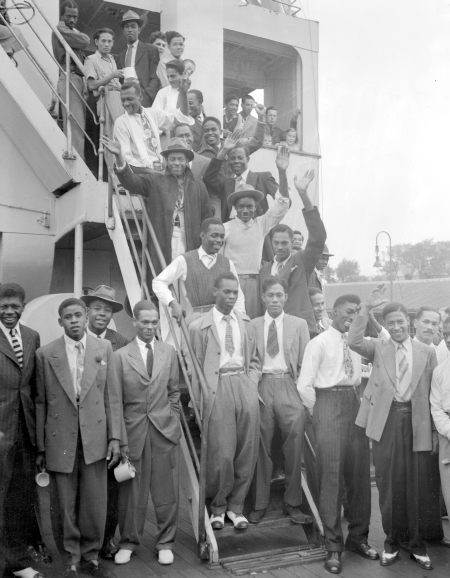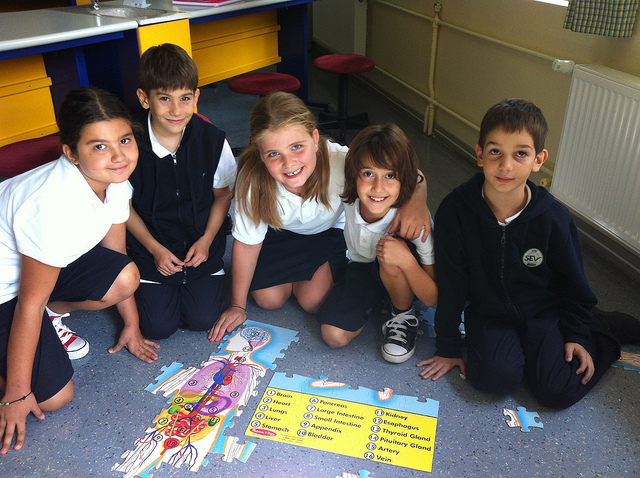1.5. Jamie's grandad
Conocimiento previo
|
Imagen de Stevvvv4444 en wikipedia bajo licencia CC |
The Empire Windrush story The S. S. Empire Windrush arrived at the port of Tilbury on 22 June 1948, carrying 492 passengers from Jamaica wishing to start a new life in the United Kingdom. The passengers (including one stowaway) were the first large group of West Indian immigrants to the UK after the Second World War. The arrival of the boat immediately prompted complaints from some members of parliament, but legislation controlling immigration was not passed until 1962. These people were temporarily housed in the Clapham South deep shelter in south-west London, less than a mile away from the Coldharbour Lane Employment Exchange in Brixton, where some of the men and women sought work. Many intended to stay for a few years and came alone, although the majority remained and settled permanently when their families came. Source: adapted from MV Empire Windrush. http://en.wikipedia.org/wiki/MV_Empire_Windrush |
|
Eva Dlouhy's story I know it's hard and difficult to leave your own country, settle in a new place and learn a new language. I, too, came here as an immigrant more than 20 years ago with my husband and then three year old son from the former Czechoslovakia, where we escaped communism. Not knowing much English, I was pleased to have the opportunity to learn the language once I arrived in London. After finishing my course in ESL at Fanshawe College, I continued Source: Adapted from ESL. http://immigration.london.ca/about-us/story-gallery/ESL.htm |
Imagen de Julie Facine en Flickr bajo licencia CC |
Actividad desplegable
Read the two stories carefully and choose:
Rellenar huecos
Listen, read and complete the story below. Use contracted forms with the verbs in negative. (was not / wasn't, did not / didn't)
Actividad desplegable
Look at the words in bold letters.

